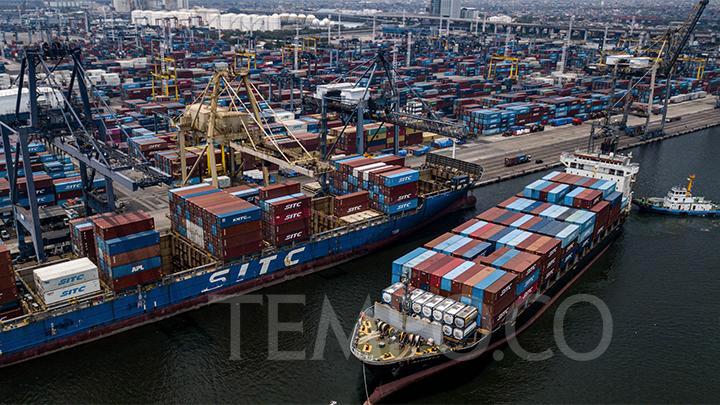Taxation DG Suryo Utomo: With Tax Cuts, the Economy Can Grow
Translator
Editor
27 February 2020 18:36 WIB

TEMPO.CO, Jakarta - SINCE he succeeded Robert Pakpahan on November 1, 2019, Suryo has been eagerly promoting the taxation omnibus bill – one of four omnibus bills – to the public, including to businesses and investors.
Suryo, 51 years old, says an omnibus law on taxation would ease the government’s effort to expand its tax base, among others, to the digital economy sector. With an omnibus law, for example, the taxation directorate-general would have the authority to collect income tax from foreign digital companies that have been operating and amassing consumers in Indonesia. “So far, (the government) has not been able to collect taxes. With an omnibus law on taxation, at least we would be able to first collect value-added tax (VAT), and then we’ll talk about income tax,” said Suryo in a special interview with Tempo at his office on February 6.
The omnibus bill on taxation, or the bill on tax facilities to strengthen the economy, will comprise 28 articles made up of 7 synchronized laws, among others, laws on value-added tax (PPN), income tax (PPh), as well as regional taxes and levies. The bill is one of 50 priority bills agreed by the House of Representatives (DPR) for completion and legislation this year.
Suryo did not deny the news that an omnibus law on taxation, which regulates discounts for institution or corporate taxes in stages, would reduce the country’s potential earnings up to trillions of rupiah. But he is certain that the tax incentive would be able to attract more investors and encourage economic growth, which is predicted to be bleak this year due to a global recession.
Suryo told Tempo journalists Sapto Yunus, Aisha Shaidra, Putri Adityowati, and Andi Ibnu about his strategy to boost revenue from taxes, the tax amnesty program’s evaluation, as well as his method for dealing with tax evaders. Excerpts:
How important is an omnibus law on taxation?
With tax cuts, we are hoping that the economy can see better growth – so the great hope is to improve the economy, alongside the other omnibus law (on job creation) to promote the business climate. In regard to the taxation omnibus law’s dimensions, the money will not be given to the state, but please circulate it. It’s the multiplier effect that we are hoping for. With the emergence of new economies, the wish is for tax (revenues) to improve.
Finance Minister Sri Mulyani says a taxation omnibus law can potentially reduce the country’s earnings up to Rp85-85 trillion. How will the deficit be addressed?
By entering new economic sources into the system. And expanding the tax base because we realize that not all bases can be promoted yet. There is still room to collect more, but efforts must be made.
What kinds of efforts?
How to reach more taxpayers to the areas that we are reducing. The omnibus bill includes sanction reductions to improve tax compliance. The current sanction is 2 percent per month. If there’s late payment, well, a maximum of 24 months at 48 percent. We will reduce this. Now, whether it’s investigated or not, the sanction is the same. No incentive for those who comply. It would be cheaper, that’s the simple way of putting it. So, let’s fix it before we investigate.
How long has the omnibus bill been in the works?
Almost as long as (the job creation bill). Nearly one year.
What was the background?
Well, looking at the current situation. We are also studying the PPh law, PPN law, not to mention other laws. If there are seven laws, when will they (legislation process) be done? So we saw that everything must be arranged under one law.
Who is included in the deliberations?
The finance ministry, me, the Investment Coordinating Board. We also hold frequent discussions with the justice and human rights ministry. You can’t draft a law on your own. It has been seriously designed since the start.
Are business associations involved?
They are intensively involved. We have invited the Indonesian Chamber of Commerce and Industry (KADIN), Indonesian Young Entrepreneurs Association (Hipmi), Indonesian Entrepreneurs Association, many.
Has it been an omnibus law concept since the start?
Yes, since the area is covered by several laws. If deliberated on one by one, when will (the laws) be executed? We already have the example of the tax amnesty law, whose substance indeed explores various laws, does it not?
Read the full interview in Tempo English Magazine























